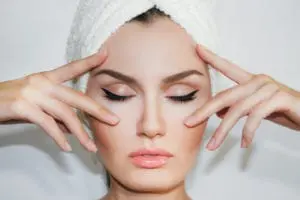 An actinic keratosis (AK), also called solar keratosis, refers to a scaly, crusty growth that occurs due to damage caused by ultraviolet (UV) radiation exposure. At the time of the initial consultation, the dermatologist will explain the various causes of AK to the patient.
An actinic keratosis (AK), also called solar keratosis, refers to a scaly, crusty growth that occurs due to damage caused by ultraviolet (UV) radiation exposure. At the time of the initial consultation, the dermatologist will explain the various causes of AK to the patient.
Suncoast Skin Solutions, led by board certified dermatologist Dr. Christopher Ewanowski, provides safe and proven skin care treatments to patients in Tampa, Brandon, Lutz, Seminole, Riverview, Brooksville, Winter Haven, Daytona Beach, Largo, St. Petersburg, Ocala, Sarasota, Palm Harbor, Central Florida, and surrounding locations in Florida.
Sun Exposure
Almost all actinic keratoses develop due to chronic sun exposure. The skin sustains cumulative damage due to sun exposure. Therefore, even short durations in the sun add to the lifetime total. In fact, even cloudy days are not safe as 70 to 80 percent of the sun’s UV radiation can pass through the clouds. This harmful radiation can bounce off snow, sand, and other reflective surfaces as well, creating extra exposure.
Older people and outdoor workers are at a higher risk as the chances of developing one or more AKs increase with the amount of time spent in the sun over the years.
As men tend to spend more time in the sun and use less sun protection in comparison to women, the incidence of actinic keratosis development is higher in men. While some people as young as in their 20s are impacted, AKs are much more common in individuals over the age of 50 years. According to experts, almost everyone over the age of 80 years has AKs.
The location also makes a difference as the proximity to the equator increases the likelihood of developing this dermatology condition.
Other Causes
The UV radiation emitted by the lamps in a tanning salon can be even more harmful and concentrated than the sun. Therefore, dermatologists warn patients against indoor tanning. The odds of developing AKs increase with tanning under these lamps.
On occasion, actinic keratoses can also develop due to extensive exposure to X-rays or various industrial chemicals.
Who is at Most Risk?
Most vulnerable to sun damage are individuals with fair skin, freckles, blonde or red hair and green, blue, or gray eyes. They have a higher chance of developing AKs if they spend time in the sun and live for long enough. Asians, African Americans, Hispanics, and others with darker complexions are not as prone as Caucasians to develop AKs, but skin cancer can occur in anyone.
In reality, partially due to later detection, skin cancers in African Americans and Hispanics are more likely to be diagnosed at an advanced stage compared to those found in Caucasians.
People who have a weakened immune system due to AIDs, cancer chemotherapy, organ transplantation or other reasons are less capable of fighting off the effects of UV radiation, and more likely to develop AKs. It is also notable that extensive UV exposure itself weakens the immune system, decreasing its ability to repair UV damage.
How to Spot Actinic Keratosis?
Actinic keratoses usually develop on the face, ears, lips, shoulders, neck, back, bald scalp, and back of the hands and forearms. They can range in size from a small spot to an inch in diameter. AKs typically seem like small scaly or crusty bumps or “horns.” The base can be light or dark skin-colored and may have other colors such as red, pink, or tan.
Patients should routinely examine their skin to look for actinic keratosis lesions. Many AKs have a different appearance. For this reason, patients should consult their doctor promptly if they detect any unusual or changing growth.
Dr. Ewanowski’s skin care clinic receives patients from Tampa, Brandon, Lutz, Seminole, Riverview, Brooksville, Winter Haven, Daytona Beach, Largo, St. Petersburg, Ocala, Sarasota, Palm Harbor, Central Florida, and nearby areas in Florida for advanced and innovative skin care procedures.
SunCoast Skin Solutions Dermatology offices are located in Tampa / Hillsborough, St. Petersburg / Pinellas County, Brandon, Lutz (2 locations), Winter Haven, Largo, Riverview, Brooksville, Ocala, Largo at Bardmoor, Daytona Beach, Sarasota, and Palm Harbor, Florida. Contact us at 1-844-786-3376 or click here.

Recent Comments